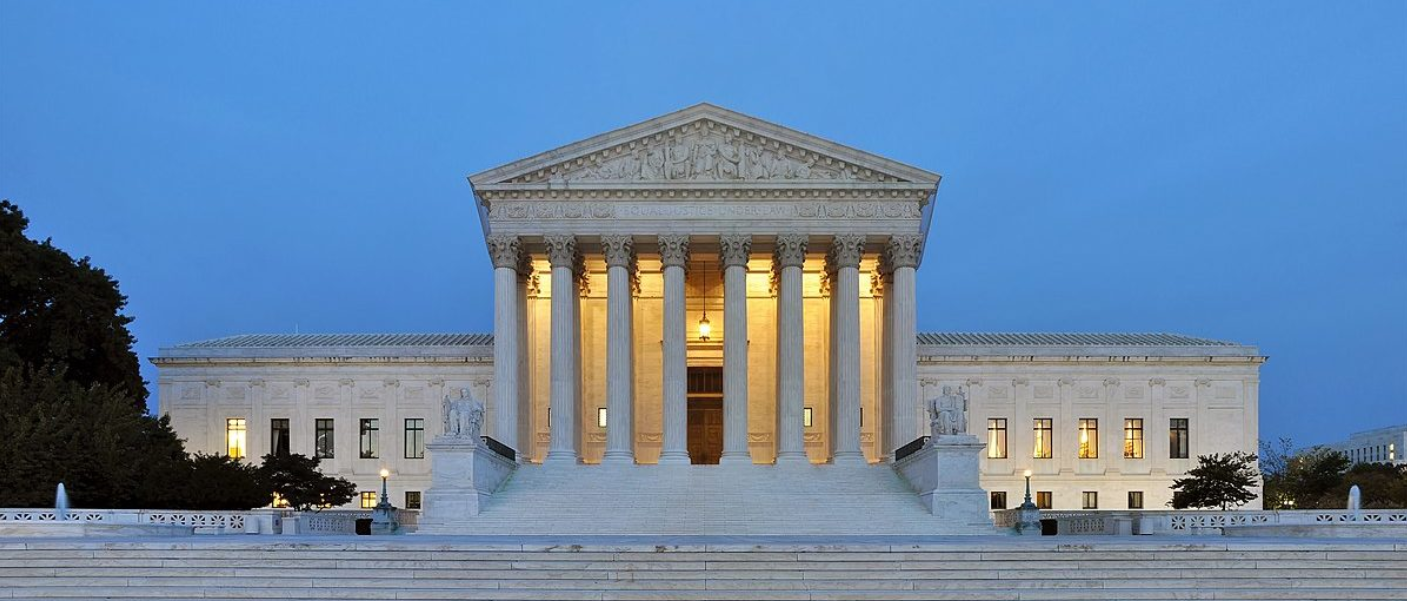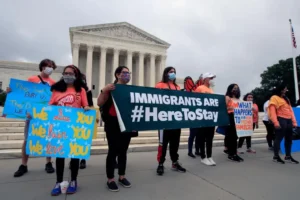Supreme Court Blocks Deportations Under Ancient Wartime Law – America Reacts in Shock after the nation’s highest court intervened to stop the immediate removal of Venezuelan migrants under a controversial law from 1798, highlighting major legal and humanitarian concerns.
What Was the Supreme Court’s Decision?
The U.S. Supreme Court issued an emergency stay on April 19, 2025, blocking the deportation of Venezuelan migrants detained under the Alien Enemies Act of 1798. The case reached the court following urgent legal action by the American Civil Liberties Union (ACLU), who argued the deportations violated constitutional rights due to lack of due process.
The Court’s unsigned, one-paragraph decision temporarily stops removals and calls for further judicial review. While Justices Clarence Thomas and Samuel Alito dissented, the rest of the bench agreed that the matter raised serious legal questions.
The 1798 Alien Enemies Act: Why Is It Suddenly Relevant?
This law—passed in the 18th century during growing tensions with France—allows the government to deport individuals from countries at war with the U.S., even without criminal charges.
Historical Use of the Alien Enemies Act:
| Time Period | Used Against | Context |
|---|---|---|
| Early 1800s | French nationals | Naval tensions (Quasi-War) |
| WWII | Japanese, German, Italian Americans | National security fears |
| 2025 | Venezuelan migrants | Alleged gang ties, no formal war |
What makes this case different is that Venezuela is not in declared war with the U.S., and the law hasn’t been used in modern times this way.
What Arguments Did the ACLU Make in Court?
The ACLU argued that:
- Detainees weren’t given proper legal notice
- Deportation orders were written in English, not Spanish
- Individuals had no access to legal counsel
- Some detainees didn’t even understand why they were being held
These issues prompted fears that migrants could be deported without any legal pathway to defend themselves, violating basic rights protected under the Constitution.
Why Did the Government Use the Alien Enemies Act Now?
The Trump administration justified its use of the act by claiming the migrants were linked to Tren de Aragua, a Venezuelan gang designated as a transnational criminal organization.
Their argument was:
- The individuals posed a threat to national security
- The law allowed swift removal without waiting for standard hearings
- Existing immigration pathways were too slow
Critics argue that this is an overreach—using a centuries-old law that was never meant for today’s immigration complexities.
How Did the Public and Politicians React?
Across the U.S., this decision led to nationwide debates and protests, especially in states like Texas, New York, and California.
- Civil rights groups praised the ruling, saying it protects democracy and legal fairness.
- Right-wing political leaders criticized the Court, calling it a threat to public safety.
- Immigration attorneys are now preparing for a full review that could set precedent for future immigration enforcement.
Legal Experts Say This Could Set a Major Precedent
This case may determine how historical laws are interpreted in modern contexts, especially ones concerning:
- Executive power in immigration
- Judicial oversight of wartime-era statutes
- Use of outdated laws to justify contemporary policy
If the Court sides with the ACLU after a full hearing, it could reshape immigration law, requiring more transparency and legal rights even in deportation cases tied to security risks.
Key Differences Between Past & Present Use of the Act
| Element | Past Usage | Current Case |
|---|---|---|
| Law Used | Alien Enemies Act (1798) | Alien Enemies Act (1798) |
| Targeted Group | Citizens from enemy nations in war | Venezuelans from a non-warring country |
| Legal Counsel Provided? | Not consistently | Often denied in 2025 case |
| Language of Documents | English (WWII era) | English-only, many migrants spoke Spanish |
| Immediate Deportation? | No (held in camps) | Yes – within hours before ruling |
The Legal and Social Web Behind the Supreme Court Case
+-----------------------------+
| Supreme Court Intervention |
+-----------------------------+
|
+-----------------------+-------------------------+
| |
ACLU Legal Action Trump Administration Claims
| |
Rights Violated National Security Concerns
| |
Due Process Denied? Use of Wartime Law from 1798
Conclusion: What This Means for the Future of Immigration Policy
This legal intervention is more than just a pause in deportations—it’s a turning point in how constitutional rights are protected in immigration enforcement. The case illustrates that even centuries-old laws can be challenged when they fail to meet today’s legal standards.
As this case unfolds, the Supreme Court’s final decision may:
- Limit executive immigration power
- Force reforms in how deportations are handled
- Trigger a new legal era balancing national security with civil rights
The spotlight now turns to how the Court will interpret a law born before the Civil War in a modern world defined by migration, human rights, and digital accountability.
[USnewsSphere.com / pbs]





